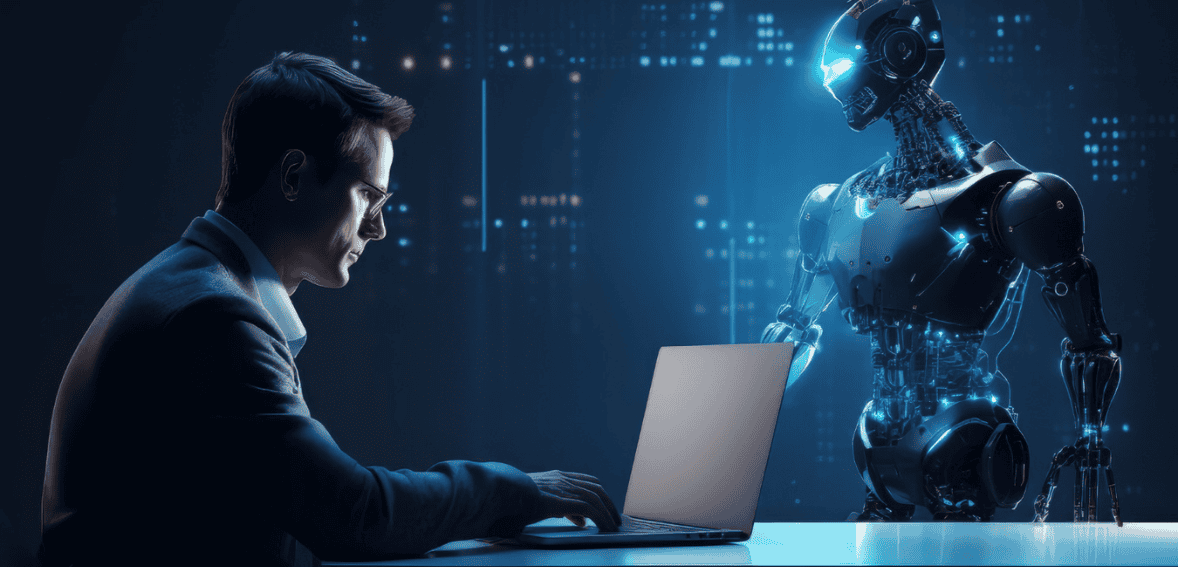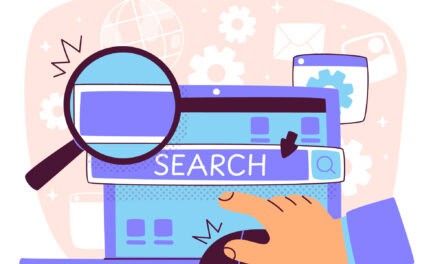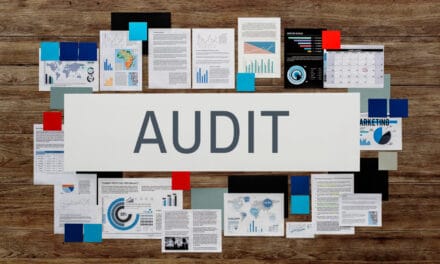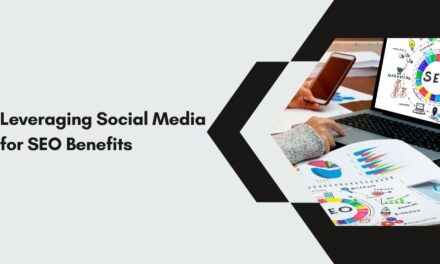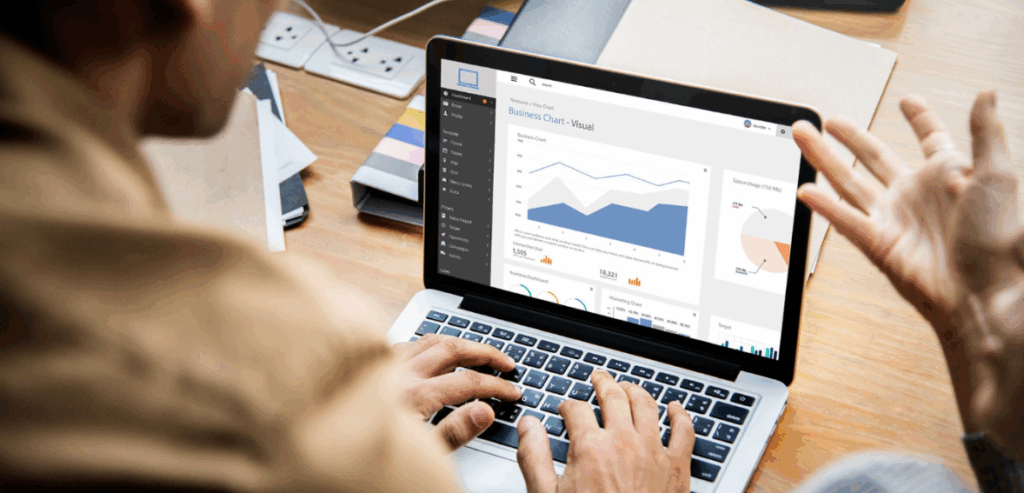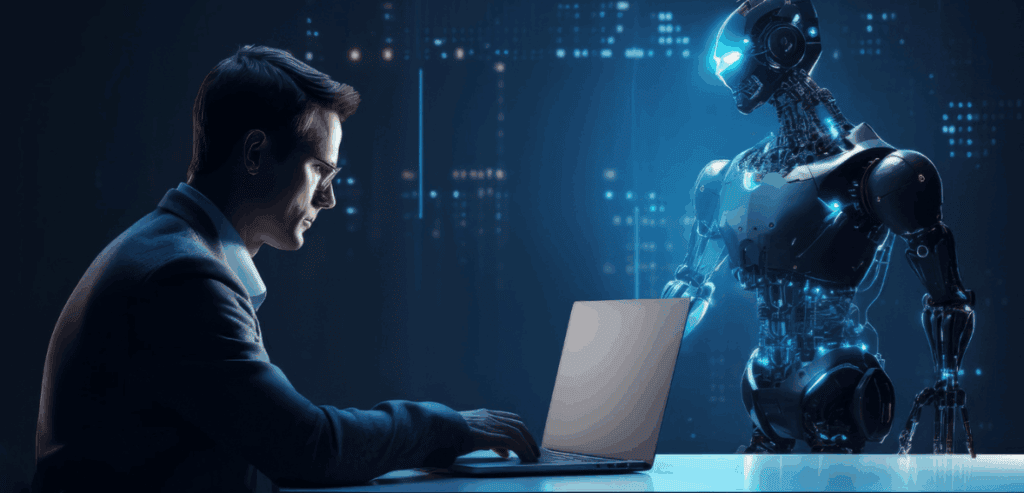The world of SEO has always been dynamic, but the rise of artificial intelligence has taken it to an entirely new level. With every major search engine update, algorithms are becoming more intelligent, capable of understanding context, intent, and relationships between websites. The traditional methods of acquiring backlinks are rapidly evolving, and marketers must rethink their strategies to stay relevant. As AI in SEO becomes increasingly sophisticated, link building is no longer just about quantity or domain authority; it’s about authenticity, context, and trust.
This transformation represents both a challenge and an opportunity. Businesses that adapt to AI-driven ranking systems will thrive, while those relying on outdated tactics risk being left behind. In this new landscape, understanding how search algorithm changes affect link building practices will be crucial. The future belongs to brands that can create genuine, meaningful online relationships supported by technology rather than manipulated by it.
How AI is Reshaping the Foundations of SEO
AI has changed how search engines process and rank content. Gone are the days of keyword stuffing and mass link exchanges. With AI in SEO, algorithms now understand search intent, page quality and backlink credibility. Machine learning allows search engines to learn from user behavior so only the best content surfaces.
This means the future of link building is more about strategic alignment than volume. Links from unrelated or low quality sites no longer pass authority as they used to. Instead AI evaluates link context; does the linking page add value and relevance to the destination site? The result is a more natural, user centric web where content must truly earn its backlinks. As algorithm changes continue to prioritize user experience and expertise, marketers must adopt data driven, ethical and personalized approaches to stay visible.
From Link Quantity to Link Quality
In the early days of SEO, more backlinks meant better rankings. However, AI has turned that equation on its head. The new rule is quality over quantity. A single backlink from a reputable, contextually relevant website now carries more weight than hundreds of low-quality links. AI in SEO assesses the authenticity and topical relevance of each link, rewarding natural connections that demonstrate authority and trust.
For businesses, this shift necessitates a more thoughtful approach to outreach and content creation. Instead of chasing every possible backlink, brands should focus on cultivating relationships with websites that share similar audiences or industries. This approach not only aligns with search algorithm changes but also builds long-term credibility. In the future of link building, quality signals such as user engagement, time on page, and click-through rates will likely carry equal importance to traditional link metrics, reinforcing the need for meaningful connections rather than manipulative link schemes.
AI and the Rise of Semantic Linking
Semantic linking, linking based on meaning not keywords, is becoming the new SEO. With AI in SEO systems like RankBrain and BERT search engines can understand the relationships between topics, entities and user intent. So contextually aligned links will beat generic ones. For example a technology blog linking to an AI software provider is a much stronger signal than a random directory link even if both have similar domain authority.
The future of link building will be about content that fits naturally within thematic networks. AI will recognize these semantic relationships and reward pages that build logical topic based link ecosystems. As the algorithm changes link strategies must prioritise relevance at every stage; from anchor text to content placement. This will create a more connected web where authority flows through meaning not manipulation.
Predictive Analytics and Smarter Outreach
One of the most exciting applications of AI in SEO is predictive analytics. AI tools can now identify which websites are most likely to respond positively to outreach, predict backlink value based on engagement patterns, and even forecast potential ranking improvements before links are built. This allows marketers to allocate resources efficiently and avoid wasted efforts on low-return activities.
In the future of link building, outreach will become less manual and more strategic. Instead of sending mass emails, businesses can use AI to personalize communication based on previous interactions or shared topics of interest. This intelligent targeting increases the chances of success while maintaining ethical standards. As search algorithm changes favor natural link acquisition, AI-driven insights will help brands focus on building relationships that deliver genuine value rather than artificial boosts.
The Decline of Black-Hat Tactics
As algorithms grow smarter, deceptive SEO tactics are becoming increasingly ineffective. Keyword stuffing, link farming, and paid link networks are now easily detected by AI in SEO systems. These techniques not only fail to improve rankings but can also lead to severe penalties. The evolution of search algorithm changes has created an environment where transparency and authenticity are non-negotiable.
For the future of link building, this marks a turning point. Black-hat methods will disappear as machine learning models become capable of identifying unnatural linking patterns. AI evaluates not just where links come from, but how they were earned. It can distinguish between editorial mentions, organic references, and manipulative insertions. This shift encourages marketers to prioritize storytelling, content value, and genuine partnerships. Building trust through meaningful digital connections will be the new benchmark of success in link building.
AI-Powered Content and Link Synergy
Content and link building have always gone together but AI in SEO is making that relationship more powerful. AI tools can analyze user intent, find trending topics and suggest content formats that attract organic backlinks. The synergy between intelligent content creation and targeted link strategies means stronger authority and visibility.
In the future of link building content will be designed not just for readers but for AI driven discoverability. Search engines will reward articles that naturally generate backlinks through value not outreach alone. The relationship between content and links will become circular; great content earns links and those links validate content quality in the eyes of search algorithm changes. Marketers who get this will dominate organic search rankings through relevance, authenticity and consistency.
Voice Search and the New SEO Paradigm
Voice search is changing how we interact with the internet and AI in SEO is at the heart of it. As more people ask conversational questions through smart devices, search engines are learning to understand natural language. This changes the future of link building as content must now match spoken intent and contextual depth.
Links in well structured, informative content; especially long form answers to common voice questions; will be more valuable. Featured snippets and authority pages optimised for voice search will get more organic backlinks. Algorithm changes favour sites that provide concise, accurate and user focused content so link building must evolve to prioritise helpfulness and clarity. Businesses that adapt their SEO and linking strategies for voice discovery will be ahead in this AI world.
Link Building in a Multi-Modal Search Environment
The future of search extends beyond text. With AI enabling visual, video, and even AR-based discovery, link building will soon incorporate multiple formats. For instance, image recognition systems can attribute value to visual mentions of brands or products, effectively turning visual citations into link-like signals. In the same way, embedded links in interactive content or video descriptions will contribute to authority in ways traditional backlinks once did.
As AI in SEO expands, algorithms will assess engagement across these diverse media types, rewarding brands that maintain consistency across platforms. Search algorithm changes are steering the web toward a multi-modal ecosystem where credibility is built through a blend of text, visuals, and voice. Link building strategies must evolve to include partnerships with creators, video platforms, and content communities, broadening what it means to “earn” a link in the digital age.
Ethical Link Building in the Age of Automation
Automation has made link building faster but has also brought new ethical dilemmas. The ease of using AI to mass generate outreach or simulate relationships can muddy the line between efficiency and manipulation. Responsible marketers must make sure AI in SEO enhances integrity not undermines it. Automated link building tools should serve to find opportunities not exploit them.
In the ever changing landscape of algorithm updates transparency will be key. Disclosing sponsored collaborations, accurate anchor text and prioritising editorial partnerships will separate the ethical brands from the opportunistic ones. The future of link building is not about exploiting the algorithm but understanding it. Businesses that use AI responsibly will build sustainable authority based on trust and quality, aligning their digital strategy with technological progress and human values.
Preparing for the AI-First Future of SEO
The coming years will redefine how SEO professionals think about strategy. As AI in SEO continues to evolve, algorithms will become self-learning, making real-time adjustments based on user engagement and contextual depth. The future of link building will rely less on metrics like domain authority and more on behavioral signals such as trustworthiness, relevance, and interactivity.
To thrive, marketers must invest in understanding AI tools, focusing on holistic optimization rather than quick fixes. Collaboration between content creators, data scientists, and outreach specialists will become essential. Search algorithm changes are steering SEO toward a more human-centered, experience-driven model; ironically achieved through advanced technology. In this world, the best links will be earned by delivering genuine value and expertise, proving that even in an AI-dominated era, authenticity remains the most powerful currency online.
The Human Element in AI-Driven Link Building
Even as technology shapes SEO strategies, the human element remains irreplaceable. While AI in SEO can analyze data, forecast trends, and automate outreach, it cannot replicate genuine human relationships. Successful link building still depends on trust, communication, and collaboration between website owners, writers, and audiences. Algorithms reward authenticity, and that authenticity often comes from real human interaction. A thoughtful email, a personalized pitch, or a meaningful collaboration with a content partner carries more value than any automated template.
In the evolving world of future link building, human creativity will continue to set the tone for brand storytelling. The most impactful links will stem from original ideas, expert insights, and emotionally resonant content. While search algorithm changes can alter technical priorities, they cannot replace the nuance of human understanding. Businesses that blend AI efficiency with human empathy will stand out, proving that the foundation of SEO remains as much about relationships as it is about algorithms.
Data Transparency and Link Authenticity
As AI-driven tools dominate SEO and link building, transparency has become a central concern. Businesses must ensure that the data guiding their campaigns is accurate, ethical, and used responsibly. Search engines now evaluate the authenticity of backlinks through advanced trust metrics, identifying suspicious linking patterns with ease. This means every backlink must be earned through genuine engagement, not manufactured through automation. AI in SEO helps enforce this integrity by auditing backlink profiles for anomalies and improving credibility scores.
For the future of link building, authenticity will be the new authority. Brands that prioritize transparent practices will not only avoid penalties but also build long-term equity. Search algorithm changes will continue to reward businesses that show real human connection in their content ecosystem. The era of artificial links is ending; the future belongs to digital ecosystems rooted in openness, honesty, and verified quality; an outcome that AI itself helps enforce.

AI Collaboration Tools and the Future of SEO Teams
The next phase of AI in SEO will transform how marketing teams operate. Instead of working in silos, human strategists and AI tools will collaborate in real time to optimize outreach, content creation, and analytics. Predictive insights from machine learning can identify emerging trends before competitors notice them, giving SEO professionals an edge in link acquisition. These tools also help monitor performance continuously, adapting link strategies as search algorithm changes occur.
For the future of link building, this collaboration means SEO teams will shift from repetitive manual work to creative, analytical, and relationship-driven roles. AI can suggest which influencers or publishers are most likely to engage, while humans craft the message and build trust. This partnership between man and machine will make SEO not just faster but smarter, turning link building into a discipline of strategic foresight rather than reactive optimization.
Preparing for the Ethical Challenges of AI in SEO
The rise of automation brings new ethical questions for digital marketers. As AI in SEO becomes more advanced, the temptation to over-automate link building grows. Automated outreach, AI-generated guest posts, and synthetic content farms can flood the internet with low-value information. Search algorithm changes are becoming increasingly strict to counteract this trend, penalizing websites that misuse AI or disguise paid content as organic endorsements.
The future of link building will depend on maintaining ethical standards while embracing innovation. Marketers must draw a clear line between automation that enhances productivity and practices that distort authenticity. Transparency about collaborations, crediting original sources, and adhering to Google’s E-E-A-T principles will be crucial. Ultimately, ethics will not be a limitation but a competitive advantage. The brands that build trust responsibly will outlast those that chase quick, algorithmic wins.
Conclusion
The evolution of AI in SEO is not replacing link building; it’s refining it. The future of link building will center around trust, context, and data intelligence. As search algorithm changes continue to emphasize relevance and credibility, businesses must move beyond outdated tactics and embrace smarter, AI-informed strategies. In this AI-powered search world, success will come from aligning human creativity with machine precision. Building real connections, crafting meaningful content, and leveraging technology ethically will define the next era of SEO. Link building will no longer be about gaming the system; it will be about earning recognition in a digital landscape that values authenticity above all.

